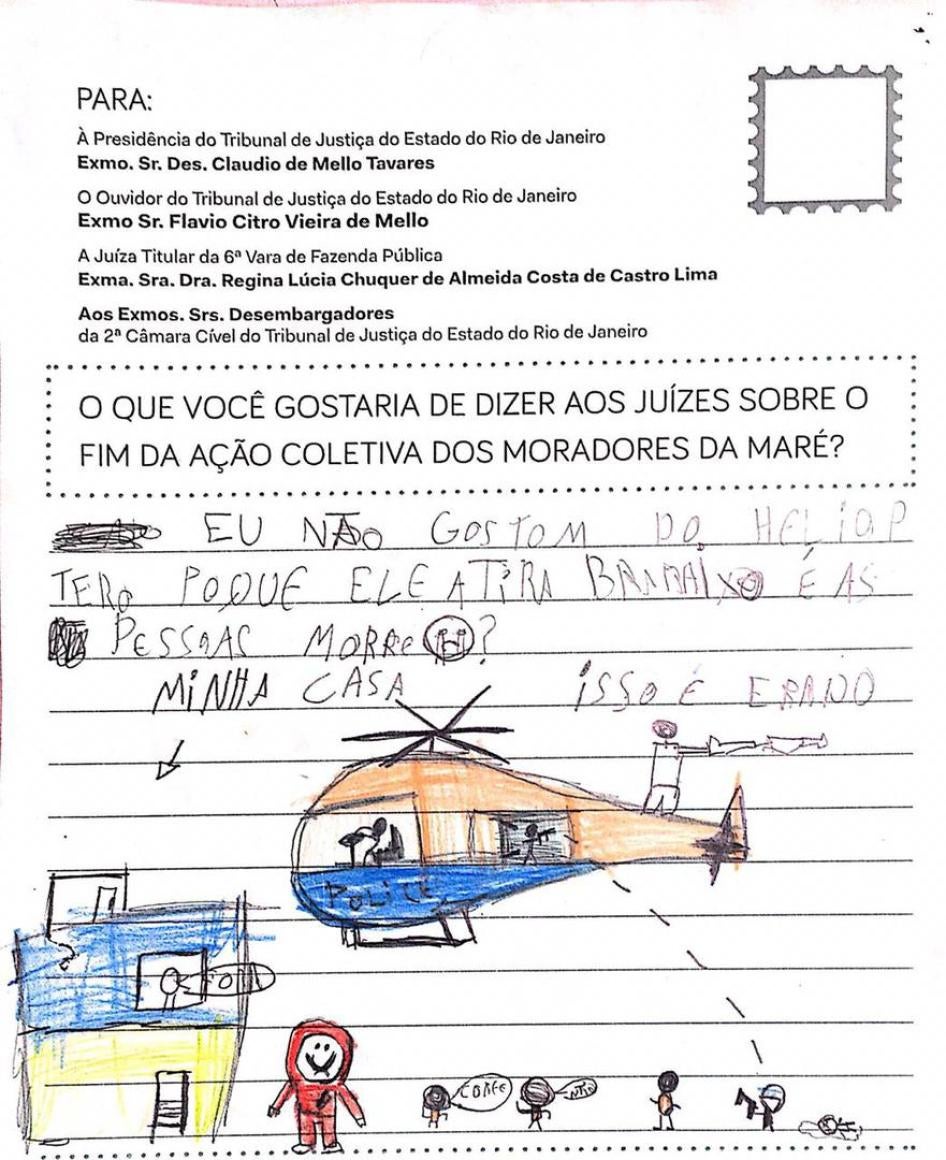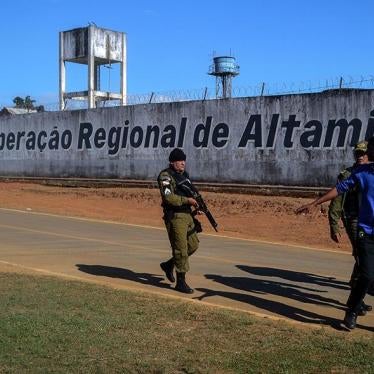“One day I was at a physical education class in the schoolyard when suddenly a helicopter started shooting down, then everyone ran to [take cover in] … the stands …. when the shooting ended, we ran into the school until my mother picked me up.”
“When we get to school, it is full of bullet holes [in the walls] and everything [is] turned upside down. I don't like [police] operations because we don't have school.”
“When there is a shootout, [the police] invade our houses ... One of my cousins was shot in crossfire. She was playing outside with her doll and was killed.”
These are excerpts of letters, sent not by children from some warring country, but from the favela da Maré, a poor neighborhood in Rio de Janeiro. They show the reality faced by thousands of children in Rio’s favelas. Police operations there all too often end with the killings of suspects and bystanders, including children.
Over the past decade Human Rights Watch has conducted in-depth research and produced multiple reports about the violence in Rio’s favelas and its impact on local families, communities, and the police themselves. We found that much of the violence is caused by criminal gangs but that the problem is only made worse by a public security strategy based on military-style raids. While some police killings in Brazil are justifiable, Human Rights Watch research has shown that many others are extrajudicial executions.
Dyogo Costa, 16, was killed on August 12, in a poor neighborhood in Niteroi. “You killed my grandson” said Costa’s grandfather to a police officer who was standing by the body, according to an interview he gave to the media . “He was a trafficker,” the police answered, without providing any evidence to the family. His grandfather vehemently denied that and said Dyogo was on his way to football practice when he was killed and only had flip flops and football gear in his bag.
In Morro dos Prazeres, community leaders told me last week that many children there will probably have to repeat a grade because so many classes have been canceled this school year due to police operations.
The idea of asking children to write the letters came from the organization Redes da Maré in cooperation with the Rio Public Defender Office. On August 12, the group sent over 1,500 letters to the court as part of a 2016 lawsuit to force police to take basic steps to protect the lives of Mare residents.
In 2017, a judge ordered the police to stop conducting raids when children were going to school or leaving to go home, to keep ambulances on stand-by, and to install GPS and cameras in patrol cars. They resulted in a decrease in the number of school days cancelled, and police killings, Redes de Mare found. But last June, another judge revoked the order, saying that the executive, not the judiciary, should set rules for the police. After receiving the letters, the Rio de Janeiro appeals court reinstated the order.
Both the President of Rio state judiciary system and the governor of Rio questioned the authenticity of the letters without providing any evidence to justify their suspicion. The governor, instead of focusing on the real problem, has accused human rights defenders of making it harder for the police to fight crime in the favelas by calling out police killings.
Abuses by police undermine any trust communities may have in the agents who should be protecting them. As a result, they are less likely to provide tips or cooperate in crime investigations. Abuses by some police officers also put other officers at risk of retaliation, including when they are off-duty. In addition, suspects who believe they will be executed by the police if they surrender, may instead opt for opening fire. A public security policy that respects human rights protects the police and the population.
“We want peace in Maré”, pleads a child one of the letters. It won´t happen until there is a serious effort to end the police abuses that are a part of the cycle of violence that has taken such a heavy toll on communities and especially these children.










